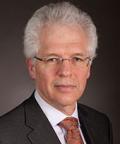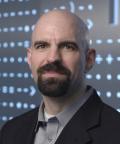People

Richard Lester
Chair, MIT Faculty Coordinating Committee, MIT Skoltech Program
Associate Provost for International Activities
Japan Steel Industry Professor
Professor Lester is the Japan Steel Industry Professor and Associate Provost at MIT, where he oversees the international activities of the Institute. From 2009 to 2015, he served as head of MIT's Department of Nuclear Science and Engineering, leading the department successfully through a period of rapid rebuilding and strategic renewal.
Professor Lester's research concerns innovation strategy and management, with a frequent focus on the energy and manufacturing sectors. He is widely known for his work on local, regional, and national systems of innovation, and he has led major studies of national and regional competitiveness and innovation performance commissioned by governments and industry groups around the world. He is the founding director and faculty chair of the MIT Industrial Performance Center.
Professor Lester is also well-known for his teaching and research on nuclear technology innovation, management, and control. He is a long-time advocate of advanced nuclear reactor and fuel cycle technologies to improve the safety and economic performance of nuclear power, and his studies in the field of nuclear waste management helped provide the foundation for new institutional and technological strategies to deal with this longstanding problem.
Professor Lester's latest book, Unlocking Energy Innovation: How America Can Build a Low-Cost, Low-Carbon Energy System (written with David Hart), outlines a strategy for mobilizing America's innovation resources in support of a decades-long transition to an affordable and reliable low-carbon global energy system. Professor Lester is also the author or co-author of seven other books, including:
- The Productive Edge: A New Strategy for Economic Growth
- Innovation—The Missing Dimension (with Michael Piore)
- Making Technology Work: Applications in Energy and the Environment (with John Deutch)
- Made in America: Regaining the Productive Edge (with Michael Dertouzos and Robert Solow)
- Radioactive Waste: Management and Regulation (with Mason Willrich)
Professor Lester earned his undergraduate degree in chemical engineering from Imperial College and his PhD in nuclear engineering from MIT. A member of the MIT faculty since 1979, he is an advisor to governments, corporations, foundations, and nonprofit groups. In addition, he serves as chair of the National Academies' Board on Science, Technology, and Economic Policy.
+
Bruce Tidor
Vice Chair, MIT Faculty Coordinating Committee, MIT Skoltech Program
Faculty Lead, MIT Skoltech Program
Professor of Biological Engineering and Computer Science
Professor Tidor completed his bachelor's degree in chemistry and physics at Harvard College. After earning his master of science degree at the University of Oxford as a Marshall Scholar, he returned to Harvard for his doctoral studies in biophysics.
Professor Tidor spent four years as a Whitehead Fellow at the Whitehead Institute for Biomedical Research. He joined MIT as an assistant professor of chemistry in 1994, became an associate professor of biological engineering and computer science in 2001, and has been a professor of biological engineering and computer science since 2005.
Research in the Tidor Group focuses on the analysis of complex biological systems at the molecular and network levels.
Projects at the molecular level study the structure and properties of proteins, nucleic acids, and their complexes. Investigations probe the sources of stability and specificity that drive macromolecular folding, binding, and catalysis. Studies are aimed at dissecting the interactions responsible for the specific structure of folded proteins and the binding geometry of molecular complexes. The roles played by salt bridges, hydrogen bonds, side-chain packing, rotameric states, solvation, and the hydrophobic effect in native biomolecules are being explored, and strategies for recasting these roles through structure-based molecular design are being developed.
Work at the network level involves the study of biochemical regulatory networks and signal transduction pathways in cells. The development of approaches to relate network topology to functional characteristics is fundamental to this research. Significant effort is being applied to extracting the design principles for biological networks and to understanding the control functions implemented.
The insights resulting from work at the network level will provide a strong foundation for understanding biological systems. Furthermore, they will be useful for the development of therapies that ameliorate disease states and for the construction of new synthetic systems from biological components. The methods of theoretical and computational biophysics and approaches from computer science, artificial intelligence, applied mathematics, and chemical and electrical engineering play fundamental roles in this work.
+
Brian Anthony
MIT Faculty Coordinating Committee, MIT Skoltech Program
Director, Master of Engineering in Manufacturing Program
Co-Director, Medical Electronic Realization Device Center, Institute for Medical Engineering and Science
Dr. Anthony is the director of the Master of Engineering in Manufacturing Program and co-director of the Medical Electronic Realization Device Center at MIT's Institute for Medical Engineering and Science.
Dr. Anthony designs instruments and techniques to monitor and control physical systems. His work involves systems analysis and design and calling upon mechanical, electrical, and optical engineering, along with computer science and optimization, to create solutions.
The focus of Dr. Anthony's research is computational instrumentation—the design of instruments and techniques to measure and control complex physical systems. His research includes the development of instrumentation and measurement solutions for manufacturing systems as well as medical diagnostics and imaging systems. In addition to his academic work, he has extensive experience in market-driven technology innovation, product realization, and business entrepreneurship and commercialization at the intersection between information technology and advanced manufacturing.
Dr. Anthony's teaching interests include the modeling of large-scale systems in a wide variety of decision-making domains and the development of optimization algorithms and software for analyzing and designing such systems. He has extensive experience in market-driven technology innovation and business entrepreneurship.
+
Munther Dahleh
MIT Faculty Coordinating Committee, MIT Skoltech Program
Director, Institute for Data, Systems and Society
William A. Coolidge Professor of Electrical Engineering and Computer Science
Professor Dahleh is director of MIT's Institute for Data, Systems, and Society, and the William A. Coolidge Professor of Electrical Engineering and Computer Science at MIT. He was previously the associate department head of Electrical, Engineering, and Computer Science (EECS).
Professor Dahleh is also a member of MIT's Laboratory for Information and Decision Systems (LIDS). He joined LIDS as an assistant professor of EECS in 1987 and became a full professor in 1998. He spent the spring of 1993 as a visiting professor in the California Institute of Technology's Department of Electrical Engineering and has held consulting positions with several companies in the U.S. and abroad.
Professor Dahleh is internationally known for his fundamental contributions to robust control theory, computational methods for controller design, the interplay between information and control, the fundamental limits of learning and decision in networked systems, and the detection and mitigation of systemic risk in interconnected and networked systems.
In particular, his research interests include:
- Networked systems: foundational theory for the interaction between physical and information networks, information propagation, distributed decisions, learning network structure from data
- Social networks: information cascades in stochastic networks, opinion dynamics, global games in modeling outcomes of crises
- Systemic risk: the development of a foundational theory for the early detection and control of systemic risk resulting from idiosyncratic disturbance affecting components of a networked system
- Transportation systems: dynamic models of congestion under disruptions, dependence of fragility on network topology, cascaded failures, value of side information on performance

Douglas Hart
MIT Faculty Coordinating Committee, MIT Skoltech Program
Professor of Mechanical Engineering
Professor Hart is the Skolkovo Foundation Professor of Mechanical Engineering at MIT and a principal investigator in the Hatsopoulos Microfluids Laboratory. He earned his bachelor's degree in aeronautical/astronautical engineering from the University of Illinois, his master's degree in mechanical engineering from MIT, and his PhD in mechanical engineering from the California Institute of Technology.
Before joining the faculty in the MIT Department of Mechanical Engineering in 1993, Professor Hart worked as a research engineer for Electromagnetic Launch Research, Inc. (now Kaman Electromagnetics Corp., a subsidiary of Kaman Corp.) on satellite propulsion and as a senior systems engineer for Northrop Corp. (now Northrop Grumman Corp.) on unmanned drones.
Professor Hart teaches and conducts research in the areas of fluid mechanics, design, and instrumentation. He is also an inventor, cofounder, and board member at three venture-funded companies, including Brontes Technologies, Inc. (an MIT Deshpande Center spinout acquired by 3M in 2006) and Lantos Technologies (an MIT Deshpande Center spinout founded in 2011).
Professor Hart has a long history of successful inventions from within and outside of academia. He is an advisor to numerous companies and professional organizations. In addition, he has received a number of awards for his research and teaching, including the Robert T. Knapp Award for his work in the area of flow diagnostics, the Keenan Award for Innovation in Education, and the Junior Bose Award for Excellence in Teaching.
His current interests include image processing along with optical diagnostics relating to health and the environment.
+
Phillip A. Sharp
MIT Faculty Coordinating Committee, MIT Skoltech Program
Institute Professor, Koch Institute for Integrative Cancer Research
A world leader in molecular biology and biochemistry research, Dr. Sharp has conducted much of his scientific work at MIT's Center for Cancer Research (now the Koch Institute), which he joined in 1974 and directed from 1985–1991. He subsequently led the Department of Biology from 1991–1999 before assuming directorship of the McGovern Institute from 2000–2004.
Dr. Sharp's research interests have centered on the molecular biology of gene expression relevant to cancer and the mechanisms of RNA splicing. His landmark achievement was the discovery of RNA splicing in 1977. This work provided one of the first indications of the startling phenomenon of "discontinuous genes" in mammalian cells. The discovery that genes contain nonsense segments that are edited out by cells in the course of utilizing genetic information is important in understanding the genetic causes of cancer and other diseases. This discovery, which fundamentally changed scientists' understanding of the structure of genes, earned Dr. Sharp the 1993 Nobel Prize in Physiology or Medicine.
His lab has now turned its attention to understanding how RNA molecules act as switches to turn genes on and off (RNA interference). These newly discovered processes have revolutionized cell biology and could potentially generate a new class of therapeutics.
Dr. Sharp has authored more than 385 scientific papers and served on advisory boards for the government, academic institutions, scientific societies, and companies. He has also received numerous honorary degrees and awards, including the Gairdner Foundation International Award; General Motors Research Foundation Alfred P. Sloan, Jr. Prize for Cancer Research; Albert Lasker Basic Medical Research Award; National Medal of Science; and inaugural Double Helix Medal from Cold Spring Harbor Laboratory (CSHL). He is an elected member of the National Academy of Sciences, Institute of Medicine, American Academy of Arts and Sciences, and American Philosophical Society, and is a Foreign Fellow of the Royal Society, UK.
A native of Kentucky, Dr. Sharp earned his BA degree from Union College (Kentucky) in 1966 and his PhD in chemistry from the University of Illinois, Champaign-Urbana in 1969. He did his postdoctoral training at the California Institute of Technology, where he studied the molecular biology of plasmids from bacteria in Professor Norman Davidson's laboratory. Prior to joining MIT, he was senior scientist at CSHL.
Dr. Sharp cofounded Biogen (now Biogen Idec) in 1978 and cofounded Alnylam Pharmaceuticals, an early-stage therapeutics company, in 2002.
+
Carl V. Thompson
MIT Faculty Coordinating Committee, MIT Skoltech Program
Stavros Salapatas Professor of Materials Science and Engineering
Professor Thompson is the Stavros Salapatas Professor of Materials Science and Engineering. He received his S.B. in Materials Science and Engineering from MIT, and his S.M. and Ph.D. in Applied Physics from Harvard University. He was an IBM postdoctoral Fellow in the Research Laboratory of Electronics at MIT before joining the faculty of the Department of Materials Science and Engineering in 1983. Professor Thompson spent the 1990-91 academic year at Cambridge University, the 1997-98 academic year at the Max Planck Institut fur Metallforschung, and 2012 at the Karlsruhe Institute of Technology. He has been active in MIT’s programs with Singapore, including twelve years leading the program for Advanced Materials for Micro- and Nano-Systems of the Singapore-MIT Alliance. He served as the President of the Materials Research Society in 1996. He is currently the Director of MIT’s Materials Processing Center and Co-Director of the Skoltech Center for Electrochemical Energy Storage.
Professor Thompson’s research interests include processing of thin films and nanostructures; the mechanical and electrical properties of nanostructures; and the incorporation of thin films and nanostructures in electronic, electromechanical, and electrochemical devices and systems. Recent research has included work on metal-ion and metal-air electrochemical energy storage systems.
Professor Thompson has been a consultant with over thirty companies, including Intel, IBM, DEC, and a number of start-ups involved in development of microelectromechanical devices and systems. Much of his research has been sponsored by industry and has included collaborations with IBM, Intel, Texas Instruments, Motorola, Global Foundries, and other semiconductor manufacturers.
+
Deliana Ernst
Assistant Director, MIT Skoltech Program
Deliana is responsible for executing the Program Office's policy, operational, and legal agreements as well as the Program's financial operations. She joined MIT's Office for the Vice President of Finance in February 2015 and assumed her current role with the MIT Skoltech Program in June 2016.
Deliana has a legal and finance background and spent many years in the corporate sector, including with companies such as Nike, Shell, PwC, and EY. At Shell, she led a global project team in implementing the Sakhalin II gas project, a collaboration with Russian energy company Gazprom.
A graduate of the Leiden University School of Law in the Netherlands, Deliana also holds a master of laws (LLM) in energy and environmental law from the University of Leuven in Belgium.
+
Chrissy Mullin
Financial Administrator 2, MIT Skoltech Program
Chrissy is responsible for the program’s financial operations. She joined MIT back in May of 2013 at the MIT Federal Credit Union where she worked until joining MIT’s Office for the Vice President of Finance in November 2016. She assumed her current role with the MIT Skoltech Program in March 2020.
Chrissy was born and raised in the Boston area. She has a background in finance and prior to coming to MIT, worked in the payment processing center for the Child Support Enforcement Agency under the Department of Revenue.
+

Natalia Billings
Administrative Assistant II, MIT Skoltech Program
Natalia is responsible for providing administrative support. She joined the MIT Skoltech Program in December 2016.
Natalia is originally from Russia and came to the US as a student. She is fluent in both English and Russian languages. Natalia has an extensive administrative experience and is passionate about higher education. She received a Master of Education degree with the concentration in Higher Education Administration from the Northeastern University in 2019.
+